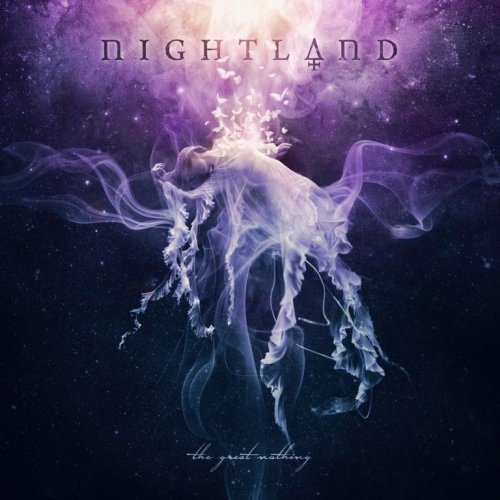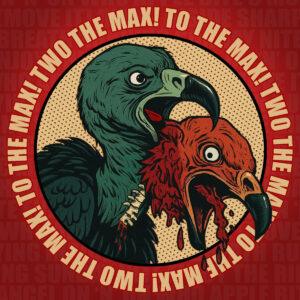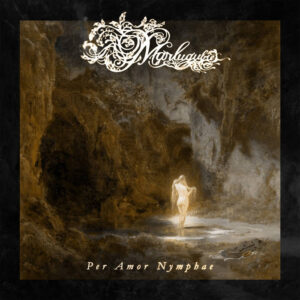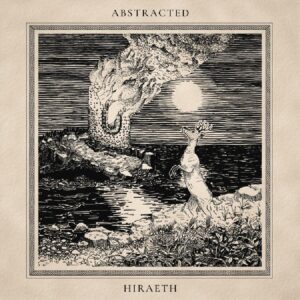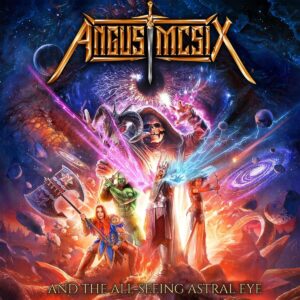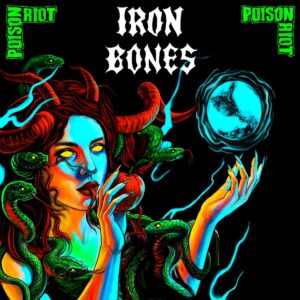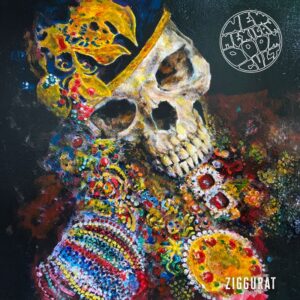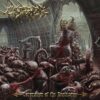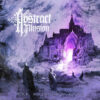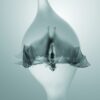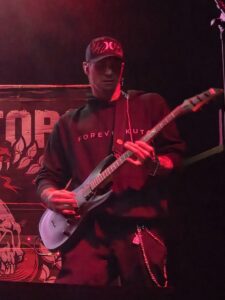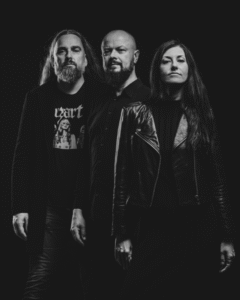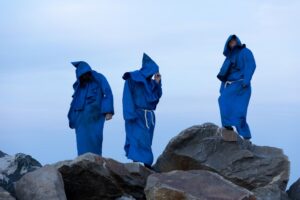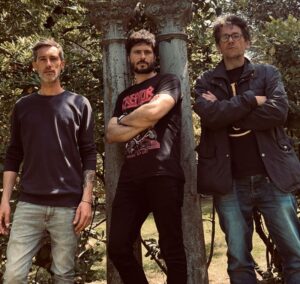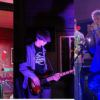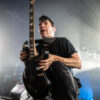Ludovico Cioffi
Nightland
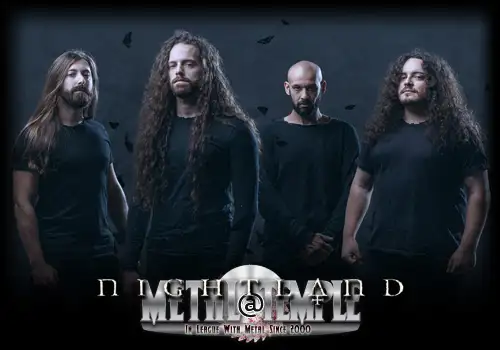
Hello Lior, thank you for this interview! Things are going pretty good overall, and hope them to get even better soon!
I remember I was touring EU with my other band The Modern Age Slavery in Jan/Feb 2020 and we started to hear about Covid as something far away from us, like one of those things that happen on the other side of the world and had no chance to have an impact on us. Then, back home from the tour and after a few days we were in lockdown. No idea of how long this would last, no idea of how it would change our lives and projects. It happened in the worst moment, when I was going through hard changes in my private life.
As soon as the first tour cancellations were announced, I started to freak out because we had a lot of great things planned for 2020, and the fact that I was going to spend an undefined amount of time without concerts/travelling/touring was pulling me down like crazy. So I decided to get my mind busy with other things like hiking, mountain-biking, drawing and it helped a lot my mental health. I spent several months without playing, without even thinking about music sometimes, then one random day in January 2021 I felt like it was the right time to get back to my business and to what I love the most, so I opened a new Logic Pro project on my laptop, plugged my guitar and started recording the new album. These two crazy years have been a disaster for everyone, and music business was hit very hard. Being able to focus on something else beside music was literally what saved me from depression, and I believe it helped me also to grow up artistically.
Umba Astra Luna was released just a few months before the pandemic started, so we played a few concerts in the Netherlands, Belgium, Germany, Switzerland then everything stopped. We didn't even play any show in Italy to support the album, it's been very hard especially because UAL was self-produced and we couldn't count on any label or agency for a proper promotion.
Umbra Astra Luna revealed all the difficulties that an independent band has to deal with in order to promote an album properly. It's not easy to be the artist and the promoter at the same time, and that's why obviously labels exist. They know the best way to sell the best product you give them, and in this moment of our career we just want to focus on creating the best product. Nothing else. So, when Scarlet Records contacted us in December 2020 we thought it was the time to finally take Nightland one step further; then they offered us a multi-album deal and we signed it, happy to be part of an Italian, strong and constantly growing label.
"The Great Nothing" is another name for the "Boötes void", which is an enormous region of the universe (near the constellation of Boötes) discovered in 1981 and containing a very small amount of galaxies. At that time it was the biggest void of the universe ever known (nearly 101 megaparsecs in diameter) and the idea of this huge dark area filled by the absence of light gave me the inspiration for the concept of the album. I imagined this "nothingness" as the place where mankind is willing to hide and confine their guilts and sins in order to purify their souls; but they're lost in this void, cursed to roam eternally without substance, without love.
The whole album is actually a journey through space and time with many references to mythology and astronomy, but the lyrics are not very "explicit" in this sense. I decided to keep all those references a bit veiled and blurry, in order to let people free to draw their own path through the listening.
Every time I mention "her" in the lyrics I refer to Callisto and how she became part of the Boreal sky (as Ursa Major) according to Greek mythology. For example, the song "For Once my Name" is actually her point of view; it's the way she looks back at the past and sadly remembers of when she was a nymph, follower of Artemis, before Zeus transformed her into a constellation. Her sense of emptiness and resignation is metaphorically the price we have to pay to get redemption for our sins.
There's much more to say about the symbolism behind each song, but that could take very long to explain, and as I said before, I would like everyone to give their own interpretation and see how the tragic, gloomy and melancholic mood of the album resonates with them. People react differently to music and lyrics; to someone, the "seeking and straying" in this nothingness, could mean fighting eternally for a love they lost. To others, maybe it means "I miss you, wait for me on the other side".
It represents the ascent of Callisto, abandoning her mortal form and letting her inner self expand to be part of the universe. White butterflies come out of her chest representing her pure heart, whose only fault was having been deceived and seduced by Zeus. Her soul is light and innocent, reaching for the stars where a good observer will notice in the upper part of the artwork the two constellations of Boötes and Ursa Major.
This is honestly my favorite version of Nightland and I think it's the most mature album we've done. We went from playing a "classic" symphonic death metal to a combination of melodic, symphonic and progressive death metal. This time I imagined the band as a self-supporting piece of the music, and not only as a complementary element of the orchestra. It made all the difference, because melodies and harmonies are built by a solid architecture of multi-layered guitars and bass, and this structure could work most of the time as stand-alone too. Orchestra then becomes fundamental to enhance particular melodies and to design the right mood and atmosphere in each moment of the album.
It's the first time we also include acoustic guitars and give consistent space to instrumental interludes, long digressions and guitar solos; I decided to take all the time needed to evolve and idea through the song, and this led me to think out of some boundaries and allowed me to write a 10+ mins track and a three acts suite. I'm not good in putting myself into a music genre, but if this means in the future we'd be labelled as some sort of progressive/orchestral band I won't be offended at all!
This time orchestrations haven't had a preeminent role in the composition, because the guitars already made a very dense weaving in the harmony, and I didn't want to go overboard with more instruments. Maybe it made the composition process of the arrangements even harder, since I had to choose carefully where to give more emphasis to the orchestra, and when to make it just smooth and soft. But that's the beautiful part of the arrangement, it gets more challenging, and you must fit together many instruments, find solutions, and try not to ruin the whole structure of the sound.
Vocals represent another change in Nightland's sound, because I decided to sing the whole album in a low range growl and not mixing mid/high as I did in the previous album. I thought it would match perfectly the new sound, more Swedish / melodeath oriented and definitely less blackish. Choirs have been a true challenge honestly. I had that kind of "cold driven clean vocals" you're talking about right there in my mind since the first time I was putting together the riffs of the songs but had no idea of how to do it and what could have been the final result. So, I recorded by myself some rough layered clean parts and I realised it would work greatly, even if it's not exactly the kind of vocals that people expect in a death metal album, but you know, I liked it and I took the risk.
I've been writing songs since when I started playing guitar, it's a very important part of my artistic path. I listen to many kinds of music and that's maybe what helped me the most in my creative process. Sometimes I get inspiration from a pop song, or a classical piece, but in the moment, I write down the first guitar riff or melody, 80% of the song is already clear in my mind. What I learned from my experience is that every time I start writing a new album, I need time to clean and "purge" my ideas until the music sounds the way I want. As an example, I wrote around 20 songs (some roughly, some more defined) before I had the 6 ones I chose for "The Great Nothing".
Once I had the main concept of the album in my mind, I started writing down the music. Of course, during the composition process, it was already clear to me where to put vocals, choirs, etc, but the lyrics were not defined yet. Usually, I start focusing on the vocal/lyrical parts right before working on the arrangements, when the structures of the songs are ready, and Filippo begins adding his touch to the drum parts. Putting together in a very consistent way lyrics and music could be very tough, but if you know exactly what that particular moment is supposed to express to the listener, what kind of sensations or mood he/she's supposed to feel, then you realise there's only one right way to make it work properly.
I L-O-V-E the final result! I said Simone to work on the sound freely, following his own taste and intuition, and I was totally right. I'm always curious to find out how other people imagine the album's sound, and I try to get rid of all my expectations about it. I want to hear the mix as a "virgin" listener, and if it gives me shivers then that's it! The first master of the album was already perfect, I loved his interpretation of the music and the way he built the "space" surrounding the band and orchestra. I couldn't imagine of a better way to experience the listening of "The Great Nothing", and to be honest I think a good part of the positive response we're getting is thanks to his amazing job with mixing and mastering the album.
It's actually one 15' song that I decided to split in three parts, but as you said, it's supposed to be enjoyed as a single musical event. After the most catchy song of the album, "Further", the listener must go through an instrumental track ("101 Megaparsecs") which is extremely important for the change of mood in preparation for the last, most challenging act of the album.
The main theme of "The
Great Nothing" is stealthily suggested in the ending of "101 Megaparsecs" and it persists during the entire song combined with blast beats and massive orchestrations. It's the resolution of the whole concept, it speaks from the mankind's point of view and shows the tormented, eternal, inner conflict on what we're willing to lose and what we long for. In the second part of the song the lyrics go "Blind is my loving, mute is my pain / silently sealing this soul in chains / one day I'll grow old, one day I'll die / yet never having you in this heart of mine (…)", and I think this is one of the most crucial moments of the album. Desperate people sometimes think they found "The Reliever", the person who can finally heal their pain with love and empathy; but they don't understand such deep wounds can't be healed by anyone but themselves, and they'll end up straying forever in this void without having experienced the feeling of being truly loved.
The final chapter of the trilogy summarises the entire album; the last words are "(…) Craving for turning from nothing to all.". That's the sum, the true essence of humanity, our eternal search for something that makes us forget of our inadequacy, and let us feel part of the universe, or the universe itself. It's a dramatic and majestic end of an album, that's fades away to a very delicate outro and intimate atmosphere, as intimate it's the existential question behind "The Great Nothing".
When I listened to the first master of the album, I said to myself "yes, this is us, this is the essence of The Great Nothing". I enjoyed it as a new listener trying to forget it was my own creation, and the feeling was absolutely positive; I saw the colours of the artwork in the music, I felt words and melodies were matching and all the work appeared very solid to me. I hope people are enjoying it the same way I did the first time, and capturing all the shades and details that make this album something I'm truly proud of.
Unfortunately, we can't be sure of when exactly live action will fully come back. At the moment we have announced our participation at Hills of Rock Festival in Bulgaria for July 2022 (with Slipknot, Sabaton, Mercyful Fate, Testament, etc), and we're planning a great return on the live scene for the next year in Italy and Europe thanks to our manager Alessandro Castelli (K2 Music Management).
Thank you very much Lior for the kind words, and for this beautiful interview, it's been a pleasure answering your questions! Ludovico

More results...
